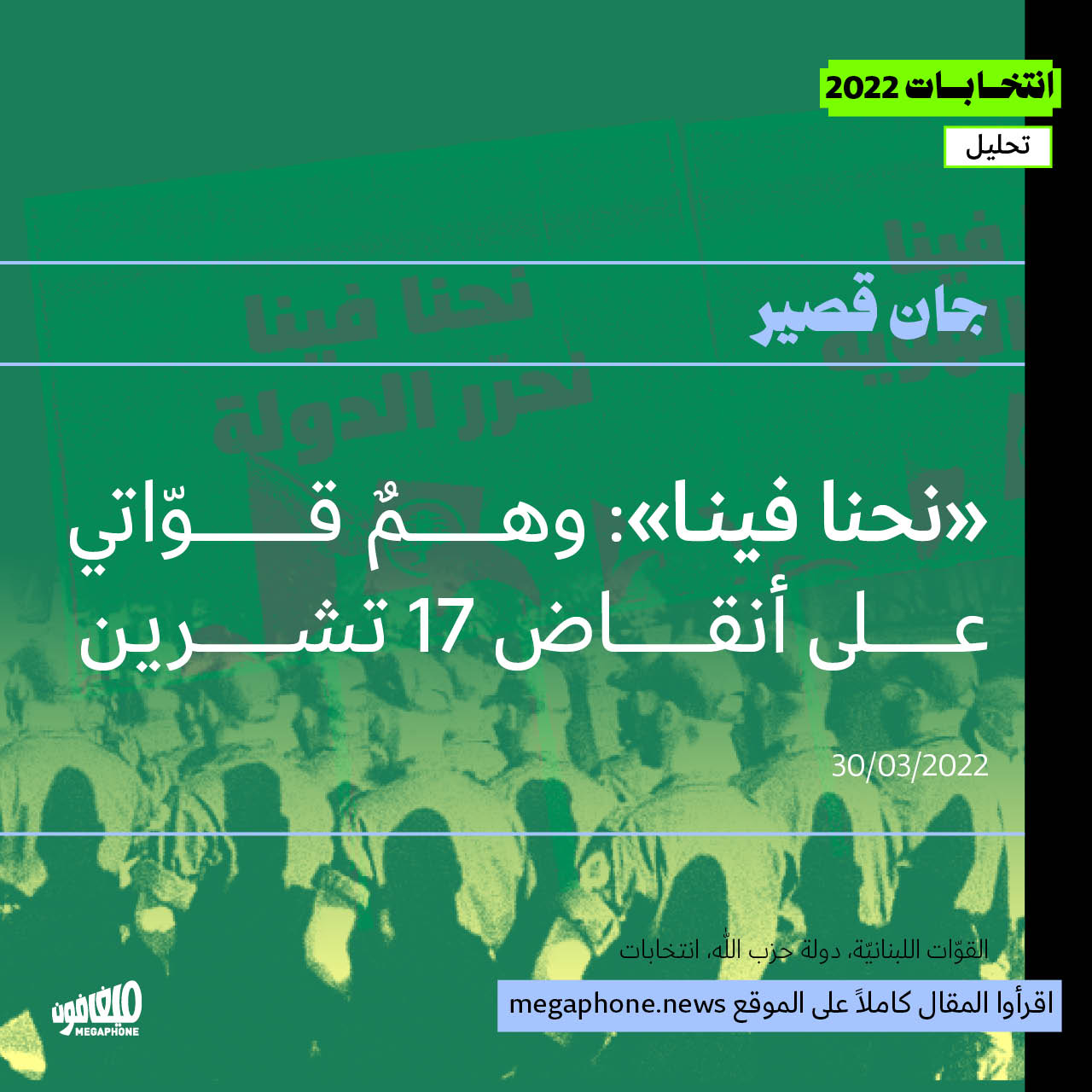same logo
It was possible for the Lebanese forces to replace their electoral slogan alone by protecting the eastern Lebanese forces.
There is nothing new in the content, other than removing the sectarian character from its old slogan. The forces are still approaching politics with the same approach that they have been famous for since the war: The time for seriousness has no place but for the logic of force and the tightening of sectarian nerves. As for the rest, that is, the October 17 uprising and the radical proposals it represents, they are children’s play.
The forces have been trying to impose this logic since the events of Tayouneh to turn the page of the revolution and replace the slogan “Everyone means everyone” with the slogan “No voice rises above the sound of battle,” that is, the battle against Hezbollah. The multitude of empty promises does not hide the fact that the forces’ policy is based on one idea: We are the strongest to confront Hezbollah. In this sense, the forces are completing the course of the counter-revolution, which Hezbollah started through threats, treason and slander. Despite the political dispute, the forces share with their opponent the goal of eliminating the radical and anti-regime political space, by limiting the political confrontation between them. The forces had started this counter-revolution by demonizing Hezbollah’s progressive opponents, such as the secular students at the Jesuit University and Captain Aref Yassin, when they competed with the forces in its stadium.
The slogan “We are in us” aspires to draw a straight historical line, from 1975 until today, around the title of sovereignty. However, this narrative is marred by historical selectivity, erasing failures, defeats, compromises and crimes, as well as ignoring the performance of the forces after 2005, when they participated in the quotas within the national unity governments alongside Hezbollah, and allied with it in several municipal and union elections, and brought Hezbollah’s first ally to the presidency of the republic. And it supported Hariri and Salameh’s economic policies that led us to collapse.
The Lebanese Forces took advantage of the revolution’s organizational weakness and inability to counter the looting, impoverishment policies, and hegemony of Hezbollah. However, this void was only filled by a fragile rhetorical situation, whose borders were a narrow Christian project, based on the same regional stakes, and not suitable for restoring a homeland. The slogan “We are in us” does not aspire to build a homeland, but rather to unite the gun christianly and again…

